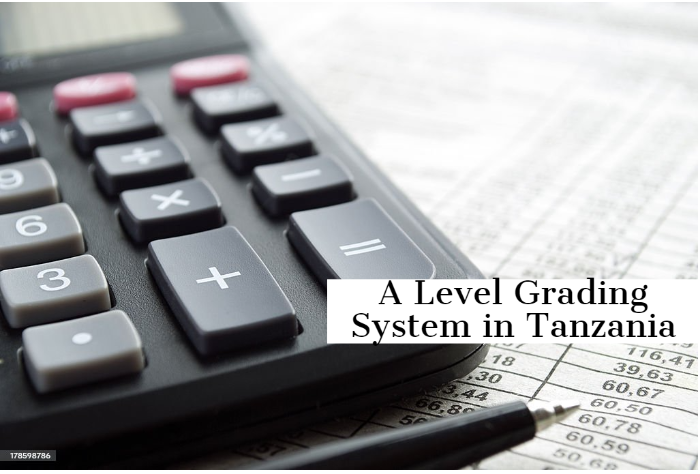
A Level Grading System in Tanzania:- The A-level education system in Tanzania is a crucial part of the country’s educational framework. It aims to provide students with a robust foundation in their chosen fields, preparing them for future careers and higher education. An essential aspect of this system is the grading process for A-level exams, which evaluates student performance and offers valuable feedback to educators.
The National Examinations Council of Tanzania (NECTA) has introduced significant updates to the A-level grading system for 2024. These changes aim to enhance the accuracy of the grading process and provide a more comprehensive evaluation of student performance. The new system adopts a five-point scale, ranging from Grade A (the highest mark) to Grade E (the lowest). This replaces the previous four-point grading scale used in earlier years.
Overview of the A-Level Grading System in Tanzania
Historical Context
Over the years, the A Level Grading System in Tanzania has seen several revisions. Initially, in 2008, the system employed a four-point scale, with Grade A as the highest mark. However, in 2014, it was updated to a five-point scale to align with international standards and offer a more precise assessment of students’ academic achievements.
A Level Grading System in Tanzania
Current Grading Scale
As of 2024, the A Level Grading System in Tanzania uses a five-point scale. Below is a detailed table showing the grades, corresponding scores, grading points, and remarks.
| Grade | Score Range (%) | Grading Point | Remarks |
|---|---|---|---|
| A | 80 – 100 | 5 | Excellent |
| B | 65 – 79 | 4 | Very Good |
| C | 50 – 64 | 3 | Good |
| D | 35 – 49 | 2 | Satisfactory |
| E | 0 – 34 | 1 | Unsatisfactory |
This grading scale evaluates students’ performance across various subject combinations, including Physics, Chemistry, and Mathematics. Understanding this system’s nuances is essential for students and educators alike, as it significantly impacts academic and professional trajectories.
Grading Criteria and Assessment Methods
Coursework Evaluation
The 2024 A-level grading system in Tanzania assesses students who have completed their advanced secondary education and are seeking admission to higher education institutions. Coursework evaluation is a critical component of this assessment. Students must complete assignments, projects, and other tasks assigned by their instructors. These tasks are graded based on the student’s ability to meet objectives, their understanding of the subject matter, and their application of classroom concepts.
Examination Standards
Examination standards also play a pivotal role in assessing student performance. NECTA administers A-level exams, designed to evaluate students’ knowledge, understanding, and application of the concepts learned in class. The exams consist of two parts:
- Written Exam: Tests students’ theoretical knowledge and understanding of subjects.
- Practical Exam: Assesses students’ ability to apply classroom concepts in practical scenarios.
Grades are awarded based on overall performance, with more weight given to the written exam. This dual approach ensures a comprehensive evaluation of students’ academic capabilities.
Implications of A-Level Grades
University Admission
A-level grades are crucial for university admissions in Tanzania. Students who achieve Division I or II are eligible for university admission, while those with Division III or IV may be accepted into diploma programs or vocational training. Division V is considered a failing grade, requiring students to retake their exams. However, grades are not the sole criterion for university admission; extracurricular activities, personal statements, and letters of recommendation also play significant roles.
| Division | Grade Points Range | University Admission Eligibility |
|---|---|---|
| I | 15–20 | Eligible for University Admission |
| II | 11 – 14 | Eligible for University Admission |
| III | 8 – 10 | Eligible for Diploma Programs |
| IV | 5 – 7 | Eligible for Vocational Training |
| V | 0 – 4 | Fail – Retake Required |
Employment Opportunities
A-level grades also impact employment opportunities. Certain positions, especially in competitive fields like medicine or engineering, may require minimum A-level grades. Employers often use these grades as a screening tool to narrow the pool of applicants. However, work experience, skills, and personal qualities are also crucial factors in hiring decisions. Thus, students can enhance their employment prospects by gaining relevant experience and developing their skills.
Final Thoughts
The A-level grading system in Tanzania is a critical tool for evaluating student performance and shaping educational strategies. The changes introduced in 2024 aim to provide a more accurate and transparent assessment of academic achievements, fostering better educational outcomes. The updated grading system is more inclusive, allowing students from diverse backgrounds to showcase their talents and potential. It also offers greater flexibility, enabling students to choose subjects that align with their interests and career goals.
Moreover, the new system provides a holistic view of students’ academic abilities, considering their performance across various subject combinations. This comprehensive assessment helps educational institutions make better-informed decisions regarding admissions.
Overall, the revised A-level grading system in Tanzania represents a significant step forward, offering a fair, transparent, and thorough evaluation of student performance. These changes are expected to improve the quality of education in Tanzania and lead to better outcomes for all students.
Also read:
- All Levels Grading System in Tanzania 2024 Full Guide
- Dar es Salaam Institute of Technology (DIT) Graduate Programs Requirements in Tanzania
- Dar es Salaam Institute of Technology (DIT) Undergraduate Program Requirements and Fee Structure in Tanzania
- NECTA Form Six Examination Results-How To Check 2024/2025
- Tanzania Commission for Universities (TCU) Guide Book Form Six 2024/2025:

